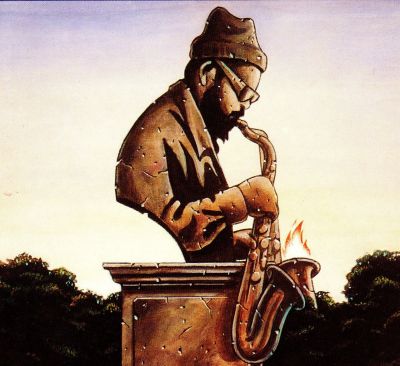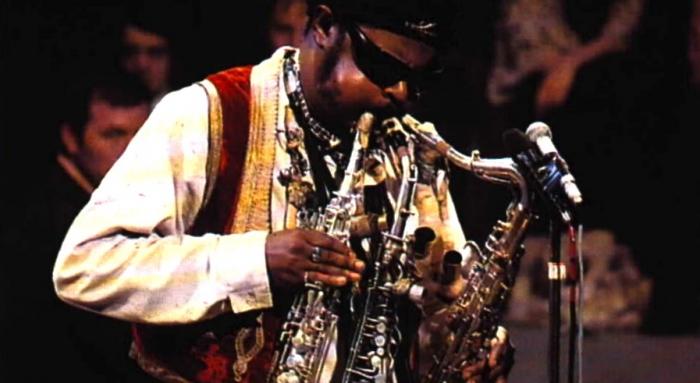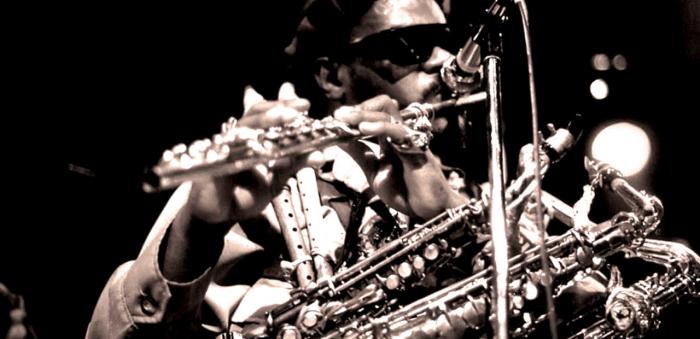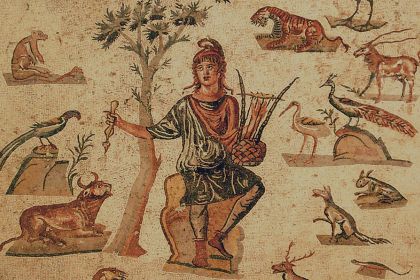FLUTE
Incredible stunts by the blind virtuoso influenced a whole generation

Rahsaan Roland Kirk
Rahsaan Roland Kirk (1936-1977) was an American jazz multi-instrumentalist who played saxophone, flute, and over 40 others instruments. He was renowned for his onstage vitality that was rich with improvisation accompanied by comic banter and political ranting.
Kirk started playing the bugle and trumpet, then learned the clarinet and sax. To these and other instruments, he began making his own improvements. He reshaped all three of his saxes so that they could be played simultaneously.
He became blind at the age of two, as a result of poor medical treatment:
"When I was one or two a nurse came into work drunk or high or mad at somebody and she slipped and put too much medicine in my eyes."
While the techniques that Kirk used were not his in origin—circular breathing is a necessity in playing the Australian aboriginal wooden pipe didjeridu, and several performers played three clarinets at once as early as the 1920's—he brought musicality to these novelty tricks.
Kirk typically appeared on stage with all three horns hanging around his neck, as well as a variety of other instruments, including flutes and whistles, and often kept a gong within reach.

A number of his instruments were exotic or homemade, but even while playing two or three saxophones at once, the music was intricate, powerful jazz with a strong feel for the blues.
"I dreamed that I was playing two horns at once and I decided to do it. My life has been motivated by dreams. I have had a series of dreams throughout my life, and each one I had changed my life."
Kirk was also a highly innovative flutist, using many unorthodox techniques in his playing, especially simultaneously singing and playing, his most famous example of which is You Did It, You Did It:
Roland Kirk was the very reason Ian Anderson thought he could bring a flute into rock music. Anderson learned Kirk’s vocalizing style on the flute and Anderson's flute playing became the signature element of Jethro Tull's sound. Anderson got to know Kirk at the 1969 Newport Jazz Festival where they both performed the same night.
Anderson said of Kirk:
"There’s something about these colorful shamans. They can tease us, but we go along with it, because we know they’re touched by genius, but at the same time there’s a little bit of the snake oil for sale.”
Kirk was politically outspoken. During his concerts, he often talked about topical issues, including black history and the civil rights movement. His monologues were often laced with satire and absurdist humor.

In 1975, Kirk suffered a major stroke which led to partial paralysis of one side of his body. However, he continued to perform and record, modifying his instruments to enable him to play with one arm.
He died from a second stroke in 1977 after performing in the Indiana University Student Union in Bloomington.



